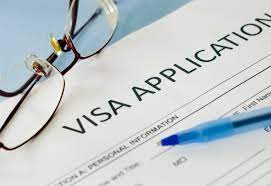The New Zealand immigration office has stated that companies hiring people with an Accredited Employer Work Visa are no longer permitted to give their workers 90-day trial periods in their employment contracts.
The Times stated that these changes took effect from October 29, 2023.
The modifications are made to guarantee that workers with valid work visas are treated fairly in employment contracts and to take care of genuine labour shortages.
The goal of doing away with the 90-day trial period for migrant workers is to protect them from being exploited and treated unfairly by forcing businesses to engage them only in situations where there is a real need for labour or a skills gap.
One of the other significant modifications to the AEWV Category is that approved companies who employ migrants in particular construction jobs must have at least 35% of their labor-hire workforce be full-time residents or citizens of New Zealand.
The AEWV evaluation procedure has also been altered by Immigration New Zealand, leading to extended processing timeframes. Employers are recommended to apply for accreditation and job checks at least six weeks ahead of time.
Trial periods are no longer allowed in employment agreements for those with work visas as a result of these AEWV reforms.
It is crucial to thoroughly check your employment agreement when you receive an offer of work from a New Zealand business to make sure a trial term is not included. If it does, you should get in touch with INZ right away.
Additionally, companies should apply well in advance for both accreditation and job inspections, as NZ is now processing AEWV applications with longer processing timeframes.
If you work as a migrant in a certain construction occupation, your employer is required to make sure that at least 35% of the labor-hire workforce is made up of full-time residents and citizens of New Zealand.
Furthermore, new applications under its Green List will be impacted by these changes.
New Zealand has extended its Immigration Green List in an effort to solve severe skills shortages, according to earlier reporting by The Times.
It is intended that New Zealand include more occupations in the fields of engineering, information technology, building, and automobiles on its Green List.
Professionals working in these industries will now be able to use Green List visas to find specialised expertise that might not be easily found in the local workforce.









